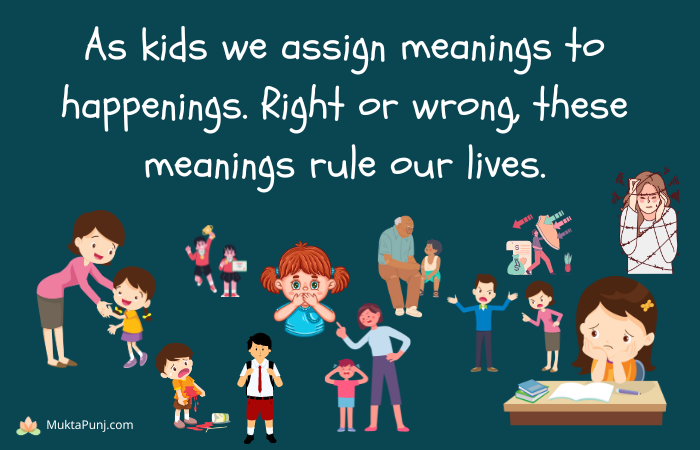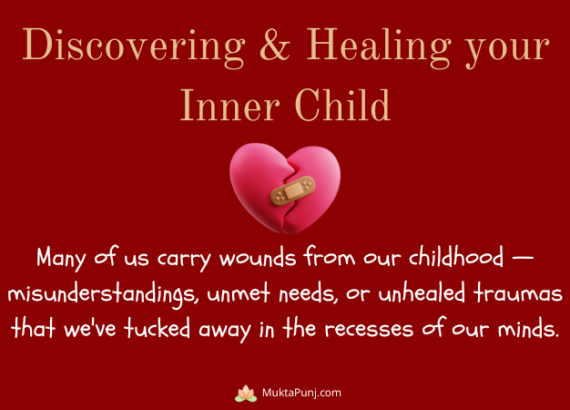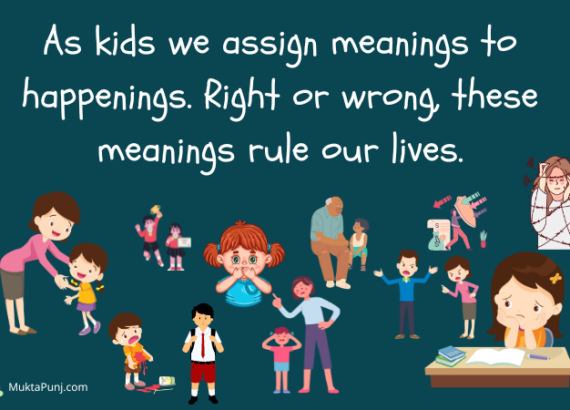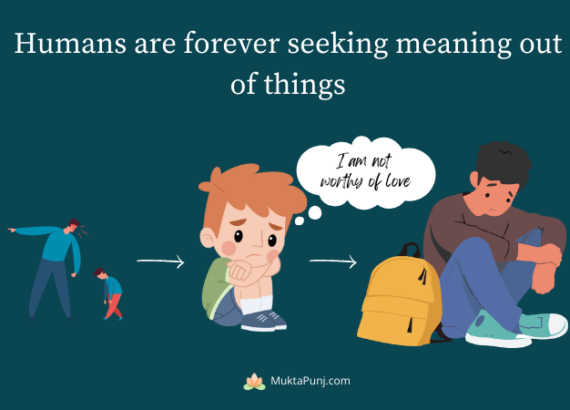Wrong Meaning-making in Childhood : 3 examples

3 Examples of Wrong Meaning-Making in Childhood
Significant moments in our childhood have a way of shaping the narratives of our lives. – Carl Jung
Jung’s work frequently explored how early experiences influence our subconscious and shape our behaviors and beliefs into adulthood.
Here are 3 examples
1. Rohan’s Fear of Expression
Rohan, a seven-year-old boy, frequently witnessed his parents’ heated arguments. Whenever he tried to voice his feelings or concerns, he was told to stay quiet because “children should not get involved in adult matters.”
Rohan internalized this incident, drawing the meaning that expressing his emotions or opinions would lead to trouble or would be outright dismissed.
As Rohan grew up, this belief manifested as a reluctance to express himself in personal and professional settings, hindering his ability to form deep connections with others and assert himself in his career.
2. Priya’s Misunderstanding of Affection
Priya, a six-year-old girl, often saw her mother lavishing attention and praise on her younger brother, especially when he achieved something noteworthy in school.
Whenever Priya tried to show her own accomplishments, her mother, overwhelmed with household responsibilities and her job, would often respond with a simple nod or a distracted “good job.”
Priya misunderstood this dynamic, concluding that she was less deserving of love and attention than her brother. This belief led Priya to grow up constantly seeking approval and validation from others, struggling with self-esteem, and often sidelining her needs for the sake of pleasing people around her.
3. Aarav’s Interpretation of Responsibility
Aarav, at the age of eight, overheard his parents discussing financial difficulties and how they needed to save money for his and his siblings’ education.
Seeing the stress and worry on his parents’ faces, Aarav decided to minimize his requests for new clothes, toys, or even outings, thinking this would ease his parents’ burden.
He grew up equating personal desires with selfishness and guilt, believing that asking for anything for himself would cause trouble for others.
This meaning that Aarav attached to his childhood observation led him to become an adult who rarely pursued his desires or invested in his happiness, affecting his overall satisfaction in life and his ability to take risks for personal growth.
Did you see how the wrong meaning-making in childhood, adversely affected these people?
Food for thought:
Which meaning-making that you did in your childhood is keeping you stuck today, even as an adult? Don’t you think it’s time to re-construct a new meaning?










